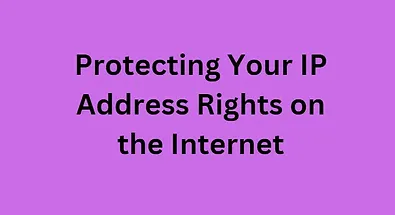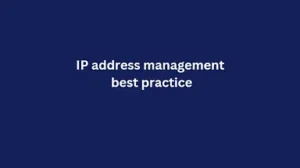The internet has become an essential part of our daily lives, and it is critical to understand and protect your Internet Protocol (IP) address rights. Your IP address serves as a digital identifier, allowing you to maintain an online presence and communicate with others. Securing your IP address rights entails navigating policies, understanding ownership, and ensuring the security of your digital footprint.
Understanding the Ownership Dynamics of Internet IP Addresses
Typically, your Internet Service Provider (ISP) assigns and manages your IP address. However, ownership dynamics can change. Some ISPs assign dynamic IP addresses, which change over time, whereas others provide static IP addresses, which provide a consistent identifier.
Legal Structure
IP addresses are critical to your online presence. Legal frameworks are primarily concerned with ISP agreements, service contracts, and adherence to regional Internet Registries’ policies. Understanding these contracts is critical for asserting and protecting your rights.
How to Prove Your IP Address Internet Rights
Acquaint yourself with Service Agreements
Examine your Internet service provider’s terms of service or user agreements. These documents frequently define the terms governing your IP address, its use, and any associated rights or restrictions. Understanding these contracts explains your rights and responsibilities.
Investigate Static IP Options
If your ISP provides this service, consider getting a static IP address. A static IP address ensures consistency, potentially giving you more control over your online presence and enabling specific functions such as website hosting or remote access.
Safeguard Your Online Privacy
It is critical to protect your privacy online. Encrypt your internet traffic with virtual private networks (VPNs) to improve your security and anonymity. Additionally, think about using tools that hide your IP address from websites.
Recognize IP Address Transferability
You may be able to transfer your IP address in some cases. Understanding the transfer process and associated policies can help you retain control over your digital presence if you’re changing ISPs or reorganizing your network infrastructure.
Keep Compliance in Mind
Follow the policies and regulations that govern the use of IP addresses. Avoid engaging in activities that may violate ISP terms or violate the rights of others. It is critical to use your IP address responsibly and legally in order to protect your rights and avoid legal consequences.
Seeking Help and Resources
Seek Legal Counsel
If you are unsure about your rights or are having problems with your IP address, seeking legal counsel who specializes in internet law can provide clarity and guidance. Legal counsel can assist in navigating complex agreements.
Maintain Your Knowledge and Education
Keep up to date on changing internet policies and technological advances that may affect IP address rights. To stay informed, participate in online forums, read industry publications, or attend seminars on internet governance.
Understanding legal frameworks, leveraging available options from your ISP, and protecting your online privacy are all part of securing your Internet Protocol address rights. By being proactive, informed, and compliant, you can confidently navigate the digital landscape while protecting your digital footprint and rights in the evolving internet ecosystem.




